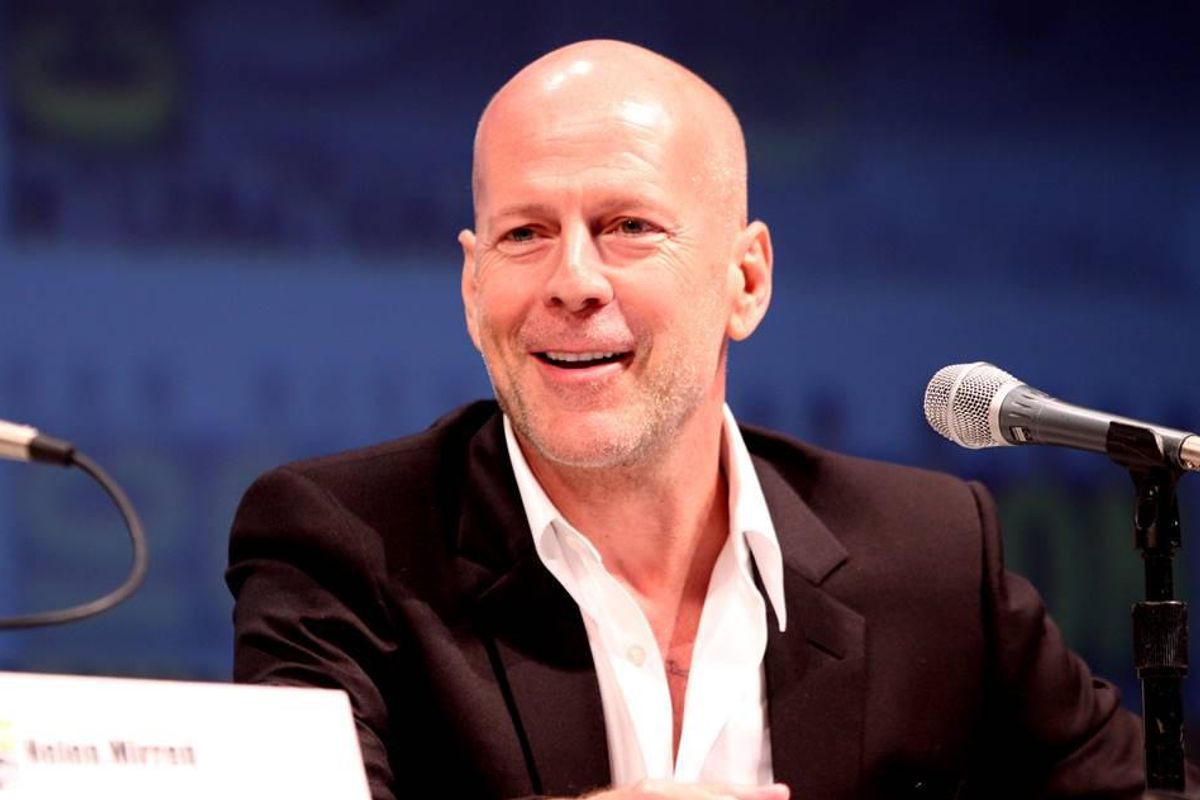Hollywood icon Bruce Willis is retiring due to a cognitive condition called aphasia

Bruce Willis at 2010 San Diego Comic Con.
The family of legendary action star Bruce Willis shared some sad news on social media Wednesday, March 30. The actor is suffering from aphasia, a language disorder, and will step back from his career on the big screen.
Willis, 67, starred in some of the most iconic films of the past five decades, including the “Die Hard” franchise, “Pulp Fiction,” “The Fifth Element,” and “The Sixth Sense.”
“To Bruce’s amazing supporters, as a family we wanted to share that our beloved Bruce has been experiencing some health issues and has recently been diagnosed with aphasia, which is impacting his cognitive abilities. As a result of this and with much consideration Bruce is stepping away from the career that has meant so much to him,” his family wrote in a joint statement.
Johns Hopkins describes aphasia as “a language disorder caused by damage in a specific area of the brain that controls language expression and comprehension. Aphasia leaves a person unable to communicate effectively with others.” It can be brought on by a stroke, head injury, brain tumor, infection or dementia.
One can imagine how hard it would be to act with that disorder.
"This is a really challenging time for our family and we are so appreciative of your continued love, compassion and support,” the Willis family added.
Although Willis will not be filming any more films, he can retire knowing that he was one of the most unique onscreen personas in film history. He was the tough guy with the heart of gold and often portrayed believable, blue-collar action guys at a time when over-the-top ridiculously swole actors such as Arnold Schwarzenegger and Sylvester Stallone ruled the box office.
As an actor, he also had a wry sense of humor that brought a sense of levity to the harrowing positions he found himself in, whether a fiery building or behind the wheel in a car chase. It shone brightly in the ’80s on “Moonlighting,” the romantic detective comedy co-starring Cybill Shepherd.
Rumors circulated that Willis may be facing health issues as an explanation for the glut of direct-to-DVD and video-on-demand films he’s made over the past several years. According to IMDb, he currently has eight films that have been completed or are in postproduction set to be released.
Now, with this announcement, his family can put those rumors aside and the public can focus on appreciating the great films he’s made over his storied career. “We are moving through this as a strong family unit, and wanted to bring his fans in because we know how much he means to you, as you do to him,” his family said.
His family signed off its announcement with Willis’ lighthearted philosophy of life. It sounds a lot like something you’d hear from the mouth of John McClane.
“As Bruce always says, ‘Live it up’ and together we plan to do just that,” his family said.
Yippie-ki-yay to that.
- The 8 best holiday movies to watch while you're bunkering down ... ›
- A 'Christmas Gargoyle' sparks an epic decoration war between ... ›
- If you're Bruce Willis in 'Die Hard,' please carry a gun. Otherwise ... ›
- 12 year old receives Razzie nomination, causing backlash - Upworthy ›
- Bruce Willis celebrates birthday after dementia diagnosis - Upworthy ›
- Artist who suffers from aphasia paints 3D optical illusions - Upworthy ›



 Worried mother and children during the Great Depression era. Photo by Dorthea Lange via Library of Congress
Worried mother and children during the Great Depression era. Photo by Dorthea Lange via Library of Congress  A mother reflects with her children during the Great Depression. Photo by Dorthea Lange via Library of Congress
A mother reflects with her children during the Great Depression. Photo by Dorthea Lange via Library of Congress  Families on the move suffered enormous hardships during The Great Depression.Photo by Dorthea Lange via Library of Congress
Families on the move suffered enormous hardships during The Great Depression.Photo by Dorthea Lange via Library of Congress

 Millennial mom struggles to organize her son's room.Image via Canva/fotostorm
Millennial mom struggles to organize her son's room.Image via Canva/fotostorm Boomer grandparents have a video call with grandkids.Image via Canva/Tima Miroshnichenko
Boomer grandparents have a video call with grandkids.Image via Canva/Tima Miroshnichenko
 Classic Film GIF
Classic Film GIF  Oh nothing, just Edyth, Arthur, and Iris hanging out at the park.
Oh nothing, just Edyth, Arthur, and Iris hanging out at the park.
 It helps that Golden Retrievers are notoriously friendly. Photo by
It helps that Golden Retrievers are notoriously friendly. Photo by